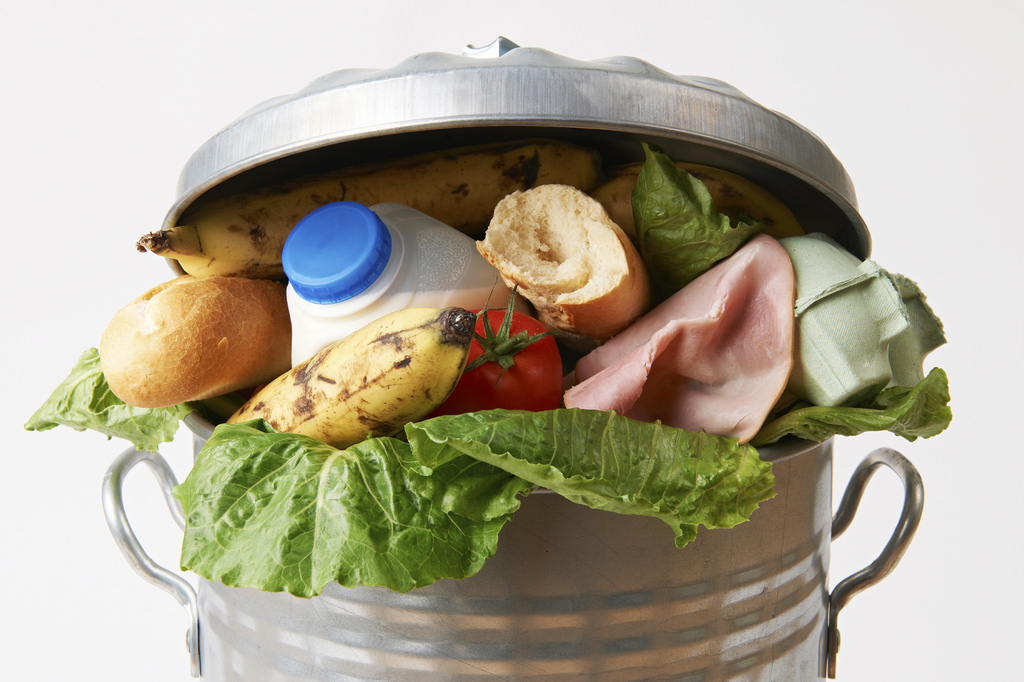Food waste being recycled to become consumer products
05/21/2018 / By Ralph Flores

Food waste is turning out to be a problem of global proportions. According to data from the United Nations’ Food and Agriculture Organization (FAO), more than one-third of food that has been produced worldwide gets lost or discarded at some point in the food supply chain. This doesn’t just waste natural and financial resources put into the production of food; it also contributes to the looming threat of food insecurity in a growing population that’s estimated to need 70 percent more food than what we’re producing today.
Upcycling avocado pits into pink tea and other efforts to counter food waste
In a surprising move, food startups are leading efforts to counter the effects of food waste. Raw materials – from coffee bean husks to beer-brewing grains that are usually found in landfills – are given new life through upcycling, with new markets developing for the products as well.
An example of such a process was developed by Drexel University Food Lab graduate students Sheetal Bahirat and Christa Kwaw-Yankson: From an avocado pit, they were able to upcycle to produce natural pink tea. They were able to develop this by blanching, grating, and dehydrating the pit – to create a mild tea with a “slightly fruity taste.”
The pit isn’t the only part of the avocado that can be used. “We can make a tea out of the skins as well,” Bahirat added. “Which is great because this country is in love with avocado.”
That’s just one of the products that has come out of the Food Lab, which has become the de facto hub for researchers looking to turn food waste – or in their terms, “upcycled food” – into consumer products.

Of course, having a great idea is just half the battle to create viable products from upcycling, especially since the idea of creating food from what is considered waste is challenging in its own right. For one, launching a brand is riddled with challenges, but sourcing waste ingredients is a different beast altogether. In particular, food safety is a cause for concern, says Food Lab’s founding professor Jonathan Deutsch, as a product’s viability can be rear-ended by something as simple as a health scare – that’s not taking into account the logistics and regulatory nightmares that food waste startups face. A report published by Harvard University’s Food Law and Policy Clinic, reviewed food safety laws in all states, finding that a lot of food being produced ends up as food waste, instead of being upcycled. Food producers, in particular, are especially hesitant, since they are liable for any food safety issues that may arise after they donate. (Related: Food waste is costing us all: The environmental and financial cost of spoiled food.)
“When you try and do surplus food work in a food system that’s not really designed to do that, you reach additional hurdles,” he added.
Elsewhere, people are thinking of imaginative ways to upcycle food
For Lazy Bear Tea’s co-founder Daniela Uribe, her inspiration for upcycled food came from the coffee farms where she grew up. Growing up, she watched how cascara, husks of the coffee cherry that are discarded during harvest, would just be used as fertilizer or thrown into the river. After a coffee chain offered a cascara-type drink, she started working with cascara in her kitchen. The result was a drink made from dried cascara, which closely resembles the taste of black tea – only smoother. This process not only reduces waste in the supply chain, but it also provides coffee farmers with a way to cash in with cascara. In terms of sustainability, Uribe knows that getting an ample amount of cascara isn’t going to be easy. However, by putting a premium on it, she believes that farmers will be incentivized to sell it. Her company has since worked on building relationships with farmers in hopes that they become future suppliers.
There’s also that “pervasive myth about liability,” according to Deutsch. In addition, most restaurants and stores just don’t have the resources to store and package waste.
Don’t call it food waste
Most food startups know that buzzwords like “upcycled” won’t be enough to get long-term customers. The key to winning over customers is to make food taste great, then send the message after. “If you have something that tastes really good with a really compelling story, people will become really loyal,” she added. “Especially if the upcycled waste-to-food story is something that resonates with them.”
There’s also one thing that’s missing from their labels – the term “food waste.” According to Daniel Kurzock, co-founder of food upcycling company ReGrained, people want to be part of the solution, while at the same time making the most of their purchase. “If you put ‘food waste’ on the package they’ll feel like they’re getting trash,” he added.
You can learn more about food waste and how we can do our part to reduce it by following FoodScience.news today.
Sources include:
FAO.org [PDF]
Submit a correction >>
Tagged Under:
This article may contain statements that reflect the opinion of the author





















